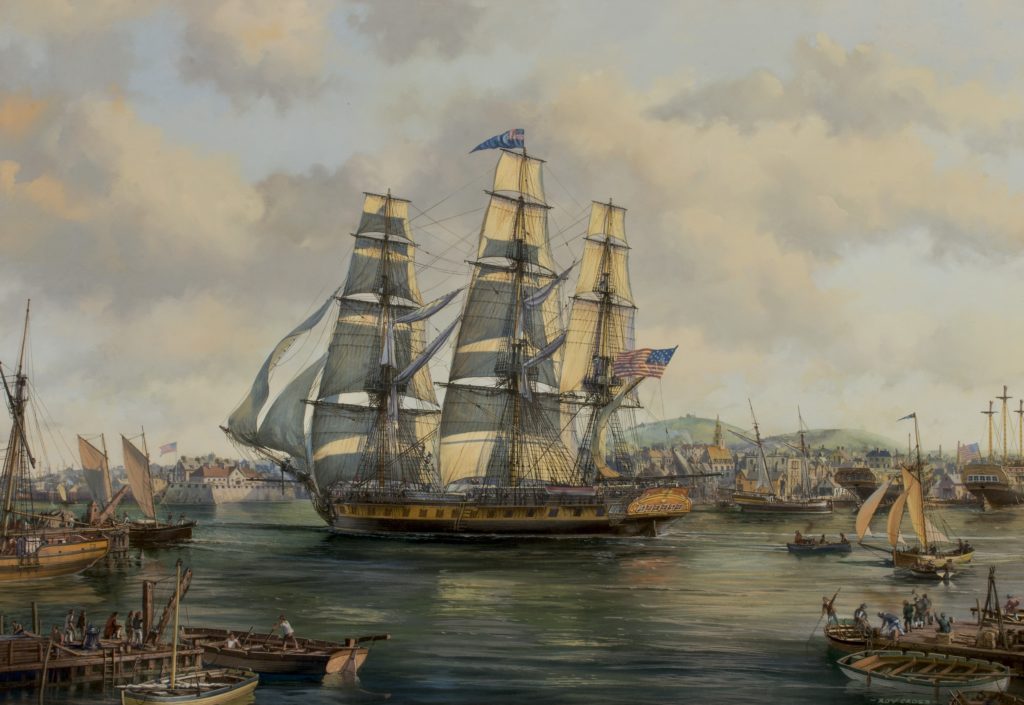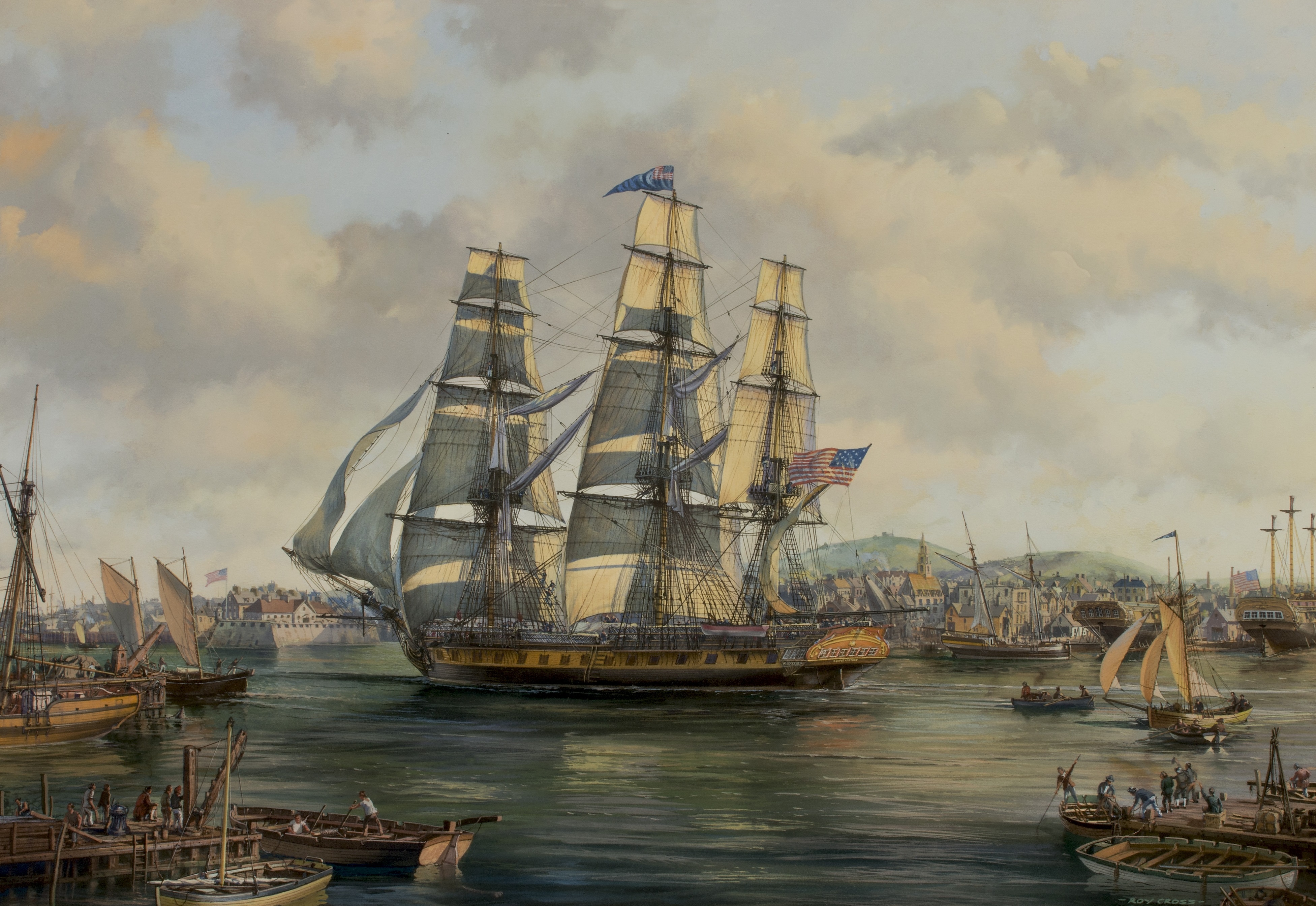At the beginning of the 19th century, some free black men from the northeastern United States, struggling to make their way in a highly discriminatory American society, went to sea in the merchant marine and the U.S. Navy, including aboard USS Constitution. By no means did shipboard life completely extract them from the prejudices of a white-dominated culture, but it often provided them with better opportunities than they had on land. Like their fellow white sailors, black seamen in the Early Republic could count on stable pay with the benefit of room and board. For many, sea service and its pay provided a path to a better life ashore.
Because race was not specifically noted in U.S. Navy personnel records at the time, much remains unknown about these men. The USS Constitution Museum has collected substantial demographic and biographical information for over 200 of the approximately 1,168 sailors assigned to Constitution during the War of 1812. Unfortunately, of those 200 or so sailors, only three (Jesse Williams, James Bennett, and David Debias) are identifiable as black.
However, a survey of the status of life for free blacks on shore sheds light on why some may have found seafaring an attractive opportunity. Moreover, anecdotal evidence, research into individual sailors, and extrapolation from British Prisoner of War records provides a better window into the lives of free black sailors in the War of 1812.
Learn more in this downloadable publication by the USS Constitution Museum — Black Sailors During the War of 1812.

The Author(s)
Kate Monea
Manager of Curatorial Affairs, USS Constitution Museum
Kate Monea is the Manager of Curatorial Affairs at the USS Constitution Museum.
Carl Herzog
Public Historian, USS Constitution Museum
Carl Herzog is the Public Historian at the USS Constitution Museum.
